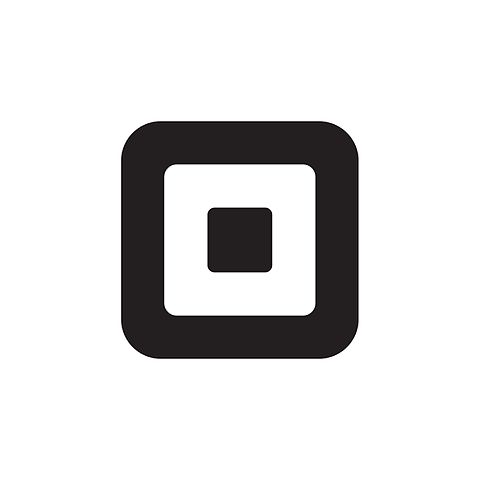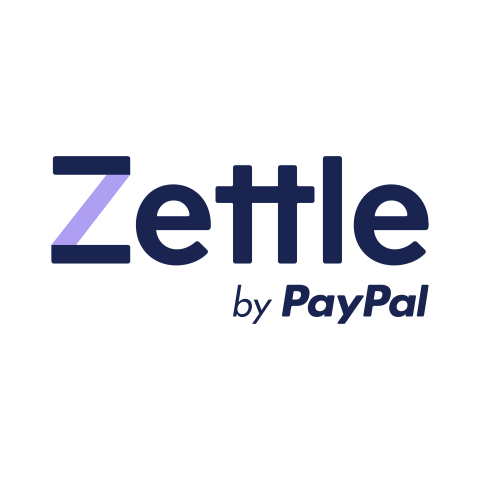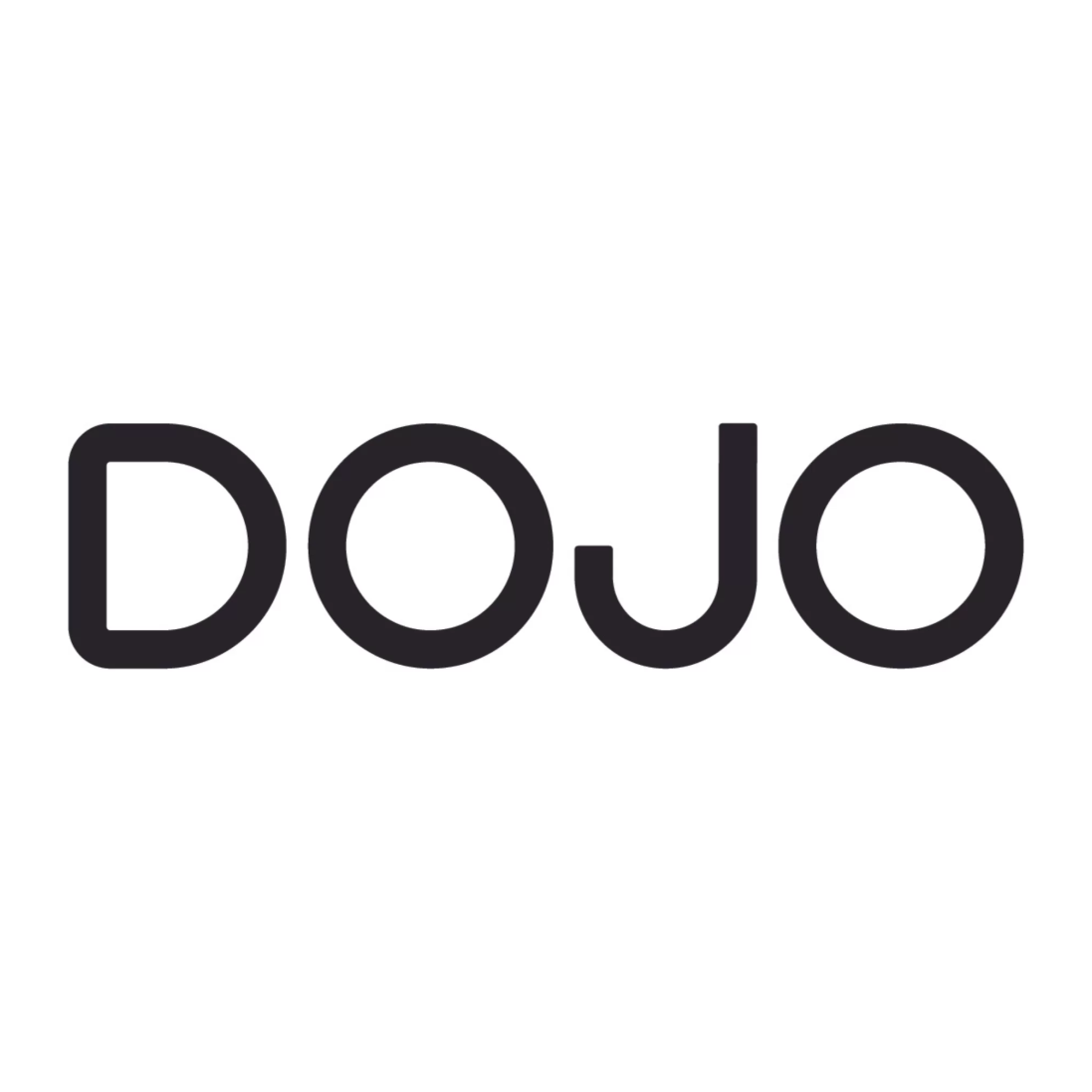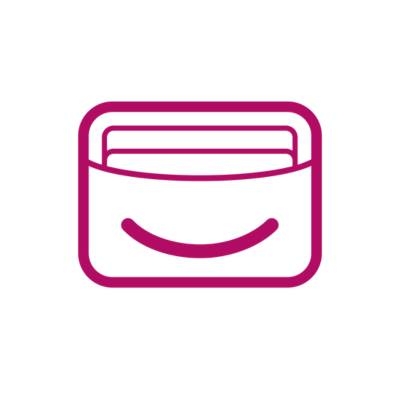A credit card machine is a device for processing credit card payments. They’re usually found at the checkout counter when buying groceries or when a server brings them to your table to settle the bill at a restaurant.
Credit card machines help businesses process payments faster and reduce human error. This ensures that the cash flow is smooth and the transactions are accurate, saving your business money in the long term.
These machines are essential for small businesses like retail stores, restaurants, hair salons, and auto repair shops. They bring convenience to customers who may not have cash on hand, thereby increasing sales. In fact, as of September 2024, 383 million credit card transactions took place in the UK, with people preferring credit cards over carrying cash.[1]
The Geekflare team has researched and curated the best credit card machines for small businesses based on factors like core features, transaction fees, connectivity, contract lengths, and supported payment types.
- 1. Square – Affordable and Easy to Use
- 2. SumUp – Best for Retail, Restaurant and Services Businesses
- 3. Zettle – Best for Small Businesses with Growing Needs
- 4. Dojo Go – Best for Fast Transactions
- 5. takepaymentsplus – Best for Multi-user Needs
- 6. Worldpay Card Machines – Trusted by Global Enterprises
- 7. Tide Card Reader – Best for Existing Tide Bank Customers
- 8. Revolut Terminal – Best for Existing Revolut Customers
- 9. Epos Now – All-in-One POS System
- Show less
You can trust Geekflare
At Geekflare, trust and transparency are paramount. Our team of experts, with over 185 years of combined experience in business and technology, tests and reviews software, ensuring our ratings and awards are unbiased and reliable. Learn how we test.
Credit Card Machine Comparison
In the table below, I’ve compared all the credit card machines on this list, considering their transaction fees, monthly fees, contract length, connectivity, and supported payment types.
 |  |  |  |  |  |  |  |  | |
1.75% per transaction for in-person payments, 2.5% per transaction for manual entry | 1.69% per transaction | 1.75% per transaction | 1.2% fixed percentage rate | Varies depending on the payment method | From £1.5% per transaction on Visa and Mastercard | 1% per transaction | Card fees starting from 0.8% + £0.02 | 1.5% per transaction | |
£0 | £0 | £0 | £15 for hardware | Varies depending on the business | £15 monthly hire fee | £0 | £0 | £0 | |
No monthly contract | No monthly contract | No monthly contract | Options for 30-day and 12-month | 12-month | 18-month | No monthly contract | No monthly contract | No monthly contract | |
Bluetooth, WiFi | Bluetooth, WiFi, Mobile data | WiFi, Mobile data | WiFi, Mobile data | WiFi, Mobile data | WiFi, Mobile data | WiFi, Mobile data | WiFi, Mobile data | Bluetooth, Wi-Fi, Mobile data, Ethernet | |
Debit/credit cards, Apple Pay, Google Pay | Debit/credit cards, Union Pay, Apple Pay, Google Pay | Debit/credit cards, VPay, Apple Pay, Google Pay, Samsung Pay | Debit/credit cards | Debit/credit cards, Apple Pay, Google Pay, Samsung Pay | Debit/credit cards | Debit/credit cards, Google Pay, Apple Pay | Debit/credit cards, VPay, Apple Pay, Google Pay | Debit/credit cards, Apple Pay, Google Pay | |
Geekflare’s editorial team determines ratings based on factors such as key features, ease of use, pricing, and customer support to help you choose the right business software. | |||||||||
Credit Card Machine Review
Below, I’ve reviewed each credit card machine, highlighting why we picked it, its features, pros and cons, and given an overall rating to help you choose the right solution.

1. Square
Affordable and Easy to Use
- WirelessYes
- Receipt OptionsEmail, SMS, Printed
- POS IntegrationYes
Why We Picked Square
Square’s credit card machine, the Square Reader, is an affordable and user-friendly solution for small businesses to streamline payment processing. It’s easy to set up, allowing them to start accepting payments quickly and efficiently. This makes it ideal for those seeking a cost-effective and hassle-free payment solution.
I like that the Square Reader has a sleek design and robust functionality, ensuring transactions are processed smoothly, in-store or on the go. It offers businesses a secure and reliable way of handling payments, which is great for sales and the customer’s peace of mind.
Square Pricing
The Square Reader itself costs £19, and has 3 pricing plans, as shown below:
– Free: £0/month
– Plus: £29/month
– Premium: Custom (for companies who process over £200K a year)
Square Features
Accepts Apple Pay, Google Pay, and other contactless payment methods.
Provides tools to manage stock levels and track inventory.
Allows businesses to create branded receipts for a personalised customer experience.
Offers detailed sales reports and customer insights to help businesses make informed decisions.
Supports operations across multiple locations with centralised reporting and management.
Square Pros/Cons
Simple, intuitive design for easy payment processing
Compatible with mobile devices for on-the-go payments
Supports offline payments
Powerful battery for handling greater number of transactions
Customisation options are limited
Not cost-effective for businesses with high transaction volumes

2. SumUp
Best for Retail, Restaurant and Services Businesses
- WirelessYes
- Receipt OptionsEmail, SMS, Printed
- POS IntegrationYes
Why We Picked SumUp
SumUp is a POS systems provider that helps businesses in the service industry process various payment types quickly and efficiently. Their credit card machines offer table-side payments for restaurants with built-in tipping features. With portable designs, the machines are ideal for service businesses that need to accept payments on the go.
These machines are simple to use and require minimal training. They also offer easy integration and no long-term contracts or hidden fees. This makes them a cost-effective choice for small businesses that must manage expenses carefully.
SumUp Pricing
SumUp’s credit card machines start from £39, and there are 3 pricing plans on offer, which are as follows:
– Pay-as-You-Go: £0/month + 1.69% for in-person payments and 2.5% for digital payments
– SumUp One: £19/month + 0.99% for in-person payments and 0.99% for digital payments
– Custom: For businesses with over £60,000 in payments a year.
SumUp Features
Lightweight and easy to carry, ideal for on-the-go transactions.
Supports contactless, chip & PIN, and mobile payments.
Ensures reliability during busy periods without constant recharging.
Quick to install with minimal technical setup required.
Connects with POS systems, inventory, and accounting software.
SumUp Pros/Cons
No monthly fees or long-term contracts
Intuitive interface
Suitable for various business models and payment scenarios
Compliant with PCI standards for secure transactions.
Per-transaction costs add up for high-volume businesses
Customer service response times aren’t consistent

3. Zettle
Best for Small Businesses with Growing Needs
- WirelessYes
- Receipt OptionsEmail, SMS, Printed
- POS IntegrationYes
Why We Picked Zettle
Zettle by PayPal is a payments solution provider that offers scalable solutions for growing small businesses without contracts or recurring fees.
I found their flat 1.75% transaction fee to be a great feature since businesses don’t need to worry about costs as their sales increase. Also, the platform’s PayPal integration enables them to seamlessly transition between in-person and online sales, which is great for businesses that want to expand into other markets.
Furthermore, I like that Zettle has a POS with features like inventory management, sales analytics, and customer tools. This allows businesses to grow efficiently without investing too much money in expensive external systems.
The mobile design of the credit card machine enables payments anywhere, from pop-up shops to storefronts, offering flexibility as businesses expand.
Zettle Pricing
Zettle has no monthly pricing plans, but there are the following costs to keep in mind:
– £29 for the first card reader and £59/additional card reader.
– 1.75% per transaction fee + other transaction types.
Zettle Features
Accepts contactless, chip & PIN, and mobile wallet payments like Apple Pay and Google Pay.
POS system with inventory tracking, sales reports, and customer management.
No long-term contracts, allowing businesses to scale payment solutions up or down.
Easy pairing with mobile devices through Bluetooth for immediate use.
Supports both physical store transactions and online sales through payment links.
Zettle Pros/Cons
Transparent pricing with no monthly fees
Ideal for businesses on the move or expanding
Smooth integration with PayPal
No customer support during the weekends
Fewer choices in terms of hardware compared to some competitors

4. Dojo Go
Best for Fast Transactions
- WirelessYes
- Receipt OptionsEmail, Printed
- POS IntegrationYes
Why We Picked Dojo Go
Dojo Go is a credit card terminal by Dojo. I noticed on the website that the company claims it can process payments 50% faster than the industry average. Completing contactless payments with the Dojo Go can take less than 2 seconds, according to them.
I believe this speed can be a game changer for busy establishments like restaurants and retail stores during peak hours. And with built-in mobile connectivity, businesses can have peace of mind knowing that the device will work even when WiFi is out.
Dojo Go Pricing
The following costs are associated with the Dojo Go card machine:
– Hardware costs start from £179
– Hardware costs can be spread with a monthly fee, starting from £15.
– Businesses can opt for a 1.2% all-inclusive charge
– A custom rate is available based on business needs
Dojo Go Features
Seamlessly switches between Wi-Fi and 4G for uninterrupted service.
Daily transfers, even on weekends and bank holidays.
A 5-inch display with a smooth, user-friendly interface.
Monitor transactions and sales on the go through the Dojo app.
Utilises point-to-point encryption for enhanced data security.
Dojo Go Pros/Cons
Transparent pricing model with clear transaction fees
Customer support is available 24/7
Integrates with over 600 EPOS systems
10-hour battery life
Supports PayPal integration
Requires a minimum contract term for businesses with lower turnover
Monthly fees aren’t cost-effective for businesses with minimal transactions
Primarily optimised for UK businesses

5. takepaymentsplus
Best for Multi-user Needs
- WirelessYes
- Receipt OptionsEmail, SMS, Printed
- POS IntegrationYes
Why We Picked takepaymentsplus
takepaymentsplus’s credit card machine caters to the needs of businesses with multiple users. I like its Cashier Management feature since it lets small business owners add different users and give them a PIN to unlock the machine when they need to use it.
This credit card machine is ideal for restaurants and retail stores that require strict control over who can handle payments.
takepaymentsplus offers detailed reporting for individual user transaction tracking and performance monitoring. This feature enables effective staff management and accountability, which is especially useful for businesses with high turnover rates.
I like the fact that it offers consistency in both performance and customer service. This is reflected directly in its Trustpilot page, showing a 4.9/5 rating with an “Excellent” tag.
takepaymentsplus Pricing
The takepaymentsplus service offers custom pricing based on your requirements. You’ll have to fill out a form on their website for a free quote.
takepaymentsplus Features
Quick item selection and customisation directly from the device.
Built-in gratuity feature for adding tips to transactions.
Allows customers to pay with both cash and card.
Real-time inventory tracking to manage stock levels efficiently.
Online management portal for in-depth analytics and settings adjustments.
takepaymentsplus Pros/Cons
Super simple to set up and start transacting
Available 7 days a week for immediate assistance
Next-day settlement of funds
No initial setup fees, making it cost-effective to start
Requires a 12-month contract, which might not suit all businesses
Hardware costs are higher than some competitors
Limited hardware options

6. Worldpay Card Machines
Trusted by Global Enterprises
- WirelessYes
- Receipt OptionsEmail, Printed
- POS IntegrationNo
Why We Picked Worldpay Card Machines
Worldpay’s card machines, the DX8000 and DX4000, are trusted by global enterprises due to their robust security features, comprehensive payment options, and scalability. They use the latest PCI security standards to facilitate safe transactions, which is crucial for small businesses that handle sensitive payment data.
The credit card machines support various payment methods, including contactless, chip & PIN, and digital wallets like Apple Pay and Google Pay, making them ideal for global operations. Furthermore, they integrate smoothly with existing business systems and run on Android for easy navigation.
Worldpay Card Machines Pricing
The pricing information for the Worldpay card machines is as follows:
– Terminal hiring fee starts from £15
– 1.5% per transaction fee on Visa and Mastercard.
– Custom plans are available for businesses with a lower transaction rate.
Worldpay Card Machines Features
Supports dual-band Wi-Fi connections, ensuring transactions can be processed reliably in various settings.
Large display with clear, user-friendly navigation for both staff and customers.
Built-in printer for issuing receipts, essential for customer service in enterprise settings.
Portal for managing all aspects of your Worldpay services, including transaction monitoring, account settings, reporting, and support.
Next-business-day settlement ensures businesses receive funds on the business day following a successful transaction.
World Card Machines Pros/Cons
Worldpay services are available worldwide
Custom pricing for businesses with high transaction volumes
Advanced reporting tools for detailed analytics
Durable design for the credit card machine
No joining fee
18-month terminal hire agreement
Difficult to integrate with complex systems
Monthly terminal rental fees are high for small or low-volume businesses

7. Tide Card Reader
Best for Existing Tide Bank Customers
- WirelessYes
- Receipt OptionsEmail, Printed
- POS IntegrationNo
Why We Picked Tide Card Reader
The Tide Card Reader is tailored for existing Tide Bank customers. I like that it seamlessly integrates with their business accounts, allowing them to accept payments directly into their Tide account, simplifying cash flow management for small businesses already using Tide’s banking services.
Tide account holders benefit from the card reader’s digital features, including no monthly contracts, free internet connectivity, and simple transaction fees.
The seamless integration with Tide’s banking platform creates an all-in-one solution for payment processing and financial management.
Tide Card Reader Pricing
There are 2 versions of the credit card machine provided by Tide, as highlighted below:
– Tide Card Reader: £49 (email receipts only).
– Tide Card Reader Plus: £79 (email and printed receipts).
Tide Card Reader Features
Payments accepted are credited to your Tide account within 3 business days.
Free SIM card with unlimited 4G mobile connectivity for transacting anytime, anywhere (can also connect to WiFi).
Real-time notifications in the Tide app when payments are made and settled.
One full charge lasts up to one full working day.
Tide Card Reader Pros/Cons
£150 cash reward for each £500 in payments processed
No monthly fees
Designed for mobility
PCI PTS-approved secure card reader
Limited to Tide account holders
Internet connectivity is required at all times
Upfront costs are high

8. Revolut Terminal
Best for Existing Revolut Customers
- WirelessYes
- Receipt OptionsDigital, Printed
- POS IntegrationYes
Why We Picked Revolut Terminal
The Revolut Terminal is suited for existing Revolut customers who want to smoothly integrate a payment solution with their Revolut Business accounts.
If you are an existing Revolut customer, I recommend the Terminal for its real-time settlement feature, which reduces the wait time for funds to arrive in the account. This goes a long way toward enhancing cash flow.
I also find the Revolut Terminal especially useful for businesses that want to leverage Revolut’s multi-currency accounts and low international transfer fees.
Furthermore, the Revolut Pay integration allows customers to pay directly through their Revolut app. This enables quicker payments while they earn RevPoints, which they can redeem for various perks. The RevPoint system works well to ensure customer loyalty.
Revolut Terminal Pricing
– £169 for hardware costs
– Processing fees start from 0.8% + £0.02/transaction
Revolut Terminal Features
The Terminal comes with a Revolut Business account.
Businesses can customise the interface and enhance functionality with widgets.
Earn RevPoints on transactions, which can be used for various perks.
Integrated with Revolut’s tools for detailed transaction analytics and business insights.
Manage payments across different business locations from one device or dashboard.
Revolut Terminal Pros/Cons
Competitive rates, especially for Revolut Pay transactions
99.9%+ uptime for peak hours and days
One-time hardware purchase with no ongoing rental fees
Uses Revolut’s cross-border payment feature
Limited availability (can only be purchased in the UK and Ireland)
Requires businesses to fully commit to Revolut’s ecosystem for maximum benefits
Only one credit card machine option

9. Epos Now
All-in-One POS System
- WirelessYes
- Receipt OptionsEmail, Printed
- POS IntegrationYes
Why We Picked Epos Now
Epos Now is considered an excellent all-in-one POS because it combines hardware and software solutions that allow businesses to manage sales, inventory, staff, and customers in one place.
By centralising all aspects of commerce, your business can reduce the need for multiple software and hardware solutions, simplifying daily operations and cutting costs.
The POS and credit card machines are adaptable to various business types. From retail to hospitality, they provide the features needed to enhance efficiency. This makes it easy to integrate into existing workflow with minimal disruption, especially when you’re expanding your POS capabilities.
Epos Now Pricing
Epos Now provides custom pricing based on your business requirements.
Epos Now Features
Process payments, handle multiple payment methods, split bills, print receipts, and manage operations anywhere.
Provides clear, fixed-rate payment solutions with no hidden fees.
PCI-compliant card payments with encrypted technology and automatic cloud syncing for data safety.
The My Business account offers fast transfers, a free card, no monthly fees, and direct POS sales tracking.
Epos Now Pros/Cons
Integrates with a wide range of third-party applications
Web chat support with real agents
Helps you recover £150 in monthly revenue lost to errors and inefficiencies
Software gets frequent updates with new features and security enhancements
Requires a monthly subscription
Not ideal for businesses with simple transactions
Primarily for UK customers
What Is the Difference Between a Card Machine and a POS System?
A card machine is a device (usually handheld) that allows individuals and businesses to process credit and debit card transactions to record and complete a sale. They can accept remote payment methods, such as Google Pay and Apple Pay, allowing people to make payments using their devices (smartphones and smartwatches).
On the other hand, a POS (Point Of Sale) is a system comprising hardware and software that manages not only payments but also inventory and employees. It also provides detailed sales analytics. Card machines are usually part of POS systems, along with other hardware like cash drawers, receipt printers, and display screens.
Since card machines are a single device, their costs are usually lower than a POS system. They’re suitable for individuals or businesses that want to take payments in multiple locations. For instance, a restaurant might want its waiters to accept payments at different tables, or a market vendor might need to process payments at various stalls.
POS systems generally have higher initial costs since they require multiple hardware. Regardless, they provide long-term value with a host of features (employee & inventory management, sales analytics, etc.) that you won’t find in a card machine. They’re suitable for businesses that want to process customer payments from a single location, such as retail stores or cafes with fixed checkout counters.

